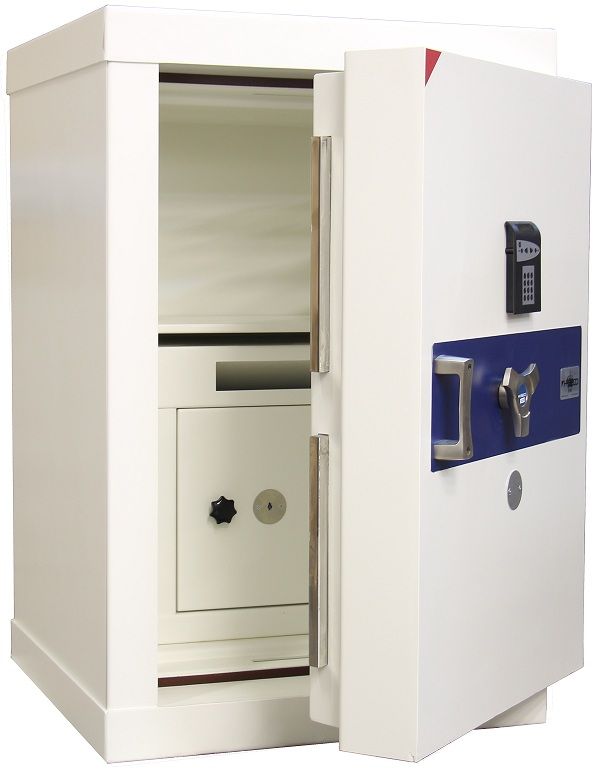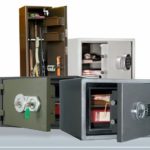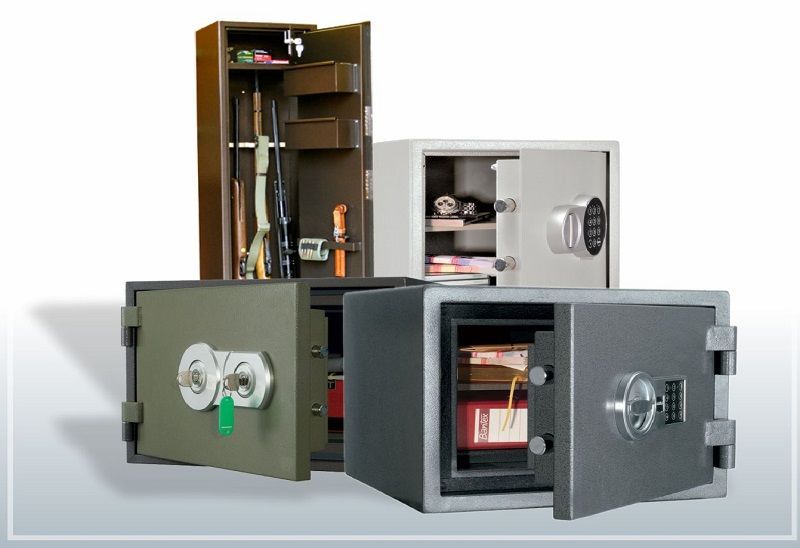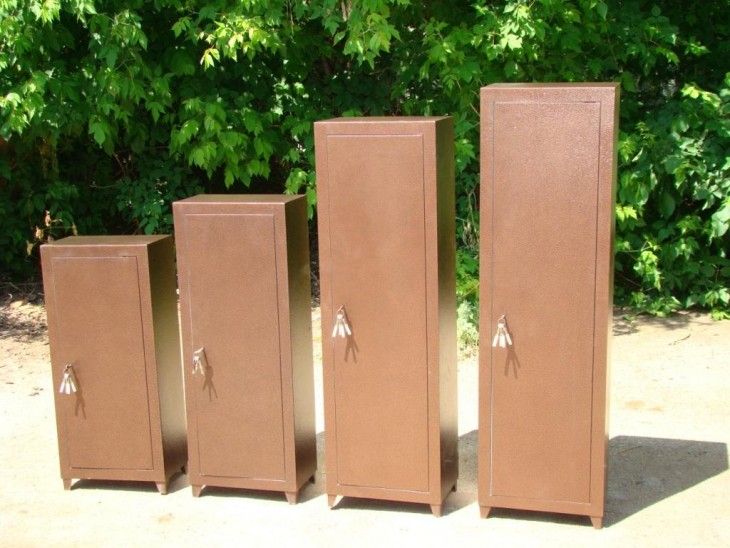Burglar resistance classes of safes
There is a universal formula for selecting a worthy storage facility for material assets: its price should be equal to 1/5 of the monetary equivalent of the contents. Deviation from the rule is allowed only in protected premises. Or in case of purchasing a cache.
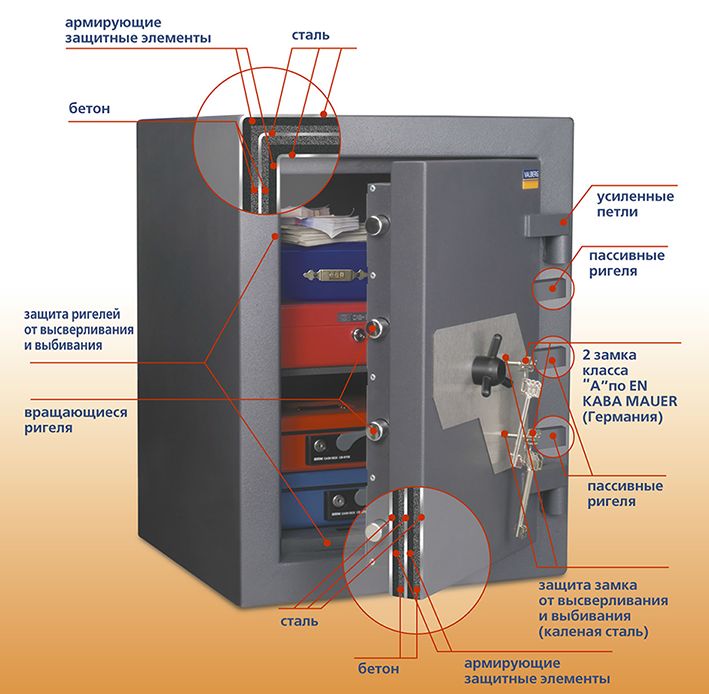
The content of the article
Burglar resistance classes of safes
Burglary resistance is measured in resistance units (Ec) and characterizes the resistance of the safe to burglary. Hacking means gaining full or partial access to the contents of the cabinet. The test test is carried out by a team of professional crackers using various tools. And the longer the model can withstand them, the higher the burglary resistance class it will be assigned.
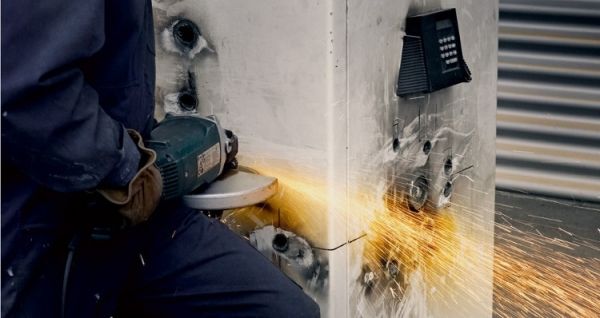
The quality certificate may indicate the time during which the storage facility was opened under laboratory conditions. When looking at them, you should understand that ideal conditions for attackers were recreated there: you can beat with a crowbar, saw with a grinder, or melt with a gas torch. Thieves usually do not risk making noise and do not carry such a specific tool with them, so even a zero burglary resistance class is a serious obstacle for them. And for burglars, even zero is often insurmountable.
1 class
It is supposed to store small amounts, a small amount of jewelry, documents that are quite easy to restore in case of loss. This safe also stores weapons and ammunition. Distinctive feature — walls 9 mm thick and a lock protected from knocking out and drilling. It is considered the optimal solution for offices and hotels, since it is difficult to open it quietly, and security will react to the noise.
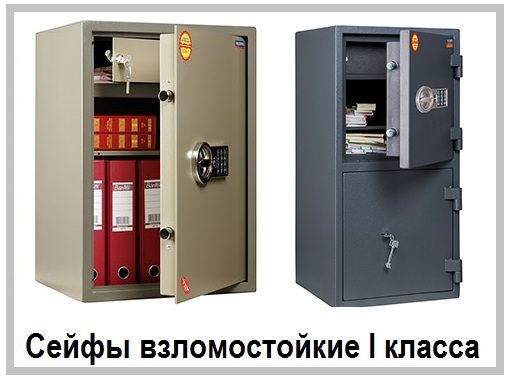
First-class safes are inexpensive and, for user convenience, are often equipped with only one mechanical or electronic lock. At the same time, the advantage and disadvantage is its low weight - the compact version will be difficult to hack, but easy to carry. Therefore, it is recommended to attach it to adjacent surfaces.
2nd grade
The purpose of this safe is the same as the previous one. It is distinguished by the thickness of its walls (up to 12 mm), consisting of sheet metal and reinforced concrete. The minimum number of locks regulated by GOST is 1, protected from cutting and drilling. But in practice, it is more common to find storage facilities with 2 redundant locking mechanisms, one of which is coded (mechanical or electronic).
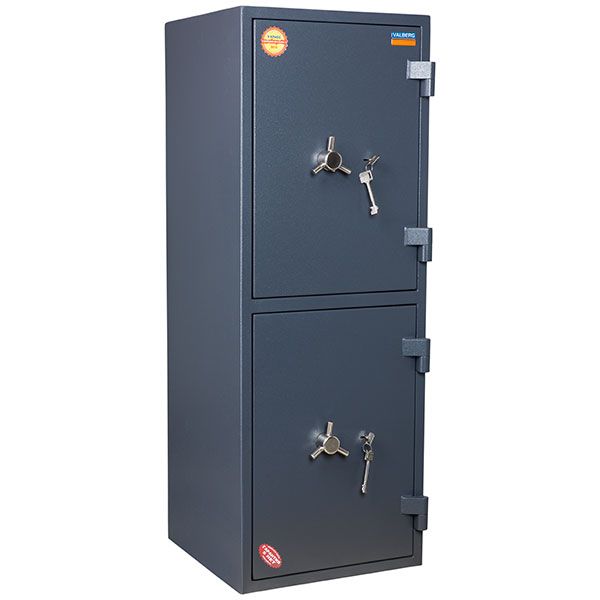
The still affordable price is combined with a considerable weight, over 150 kg. It is impossible to quietly take away such a safe, so it can be used in unguarded premises. It takes from 30 to 60 minutes to crack it in laboratory conditions - this time is more than enough for the police to arrive.
3rd grade
Not yet a bank vault, but already a fortress. Two locks, solid wall thickness and, often, fire resistance make it suitable for storing large sums, important documents or a substantial arsenal of weapons. It is in such safes that narcotics and psychotropic substances are stored in pharmacies. The same thing can stand in a small jewelry store - it’s not easy to break through ten-centimeter walls consisting of two sheets of steel 18 mm thick and reinforced concrete.And getting through a door that is blocked due to unauthorized access is even more difficult. The removal of two hundred (minimum) kilos of “wealth” secured with anchors borders on fantasy.
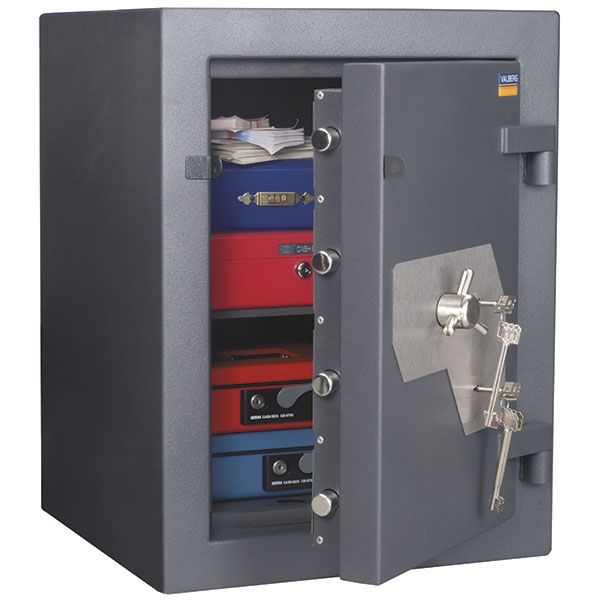
In laboratory conditions, partial access to the content can be obtained in 60-90 minutes. In real life, this figure can easily be doubled. But taking into account the cost of the contents, you should not neglect the security alarm.
4th grade
Steel is 22 mm thick, the total wall thickness is over 10 cm, materials are used as filler that can damage even diamond drills. Any thermal or mechanical effect alone is useless - the cutting edge becomes dull, and concrete cannot be penetrated by fire. The minimum number of locks is 2. Both are lever type. In case of unauthorized access, the bolts are blocked in all four directions. The minimum strength weight is 400 kg.
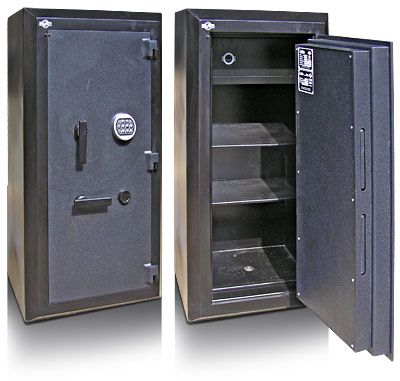
This is already a safe that is used by serious jewelers and banks. It takes at least 120 minutes to hack it and gain partial access in laboratory conditions. In combination with redundant security systems, the storage facility can confidently be called impenetrable.
5-7 grade
These are the real titans of the world of safes, used by jewelers and bankers. The wall thickness, made of a patented composite material, can exceed 120 mm. The ultra-high strength of the body and door is complemented by at least two Class B lever locks and powerful bolts. Minimum weight - ton. Class 5 safes are mass-produced, but in small batches. Everything above is made only to order.
